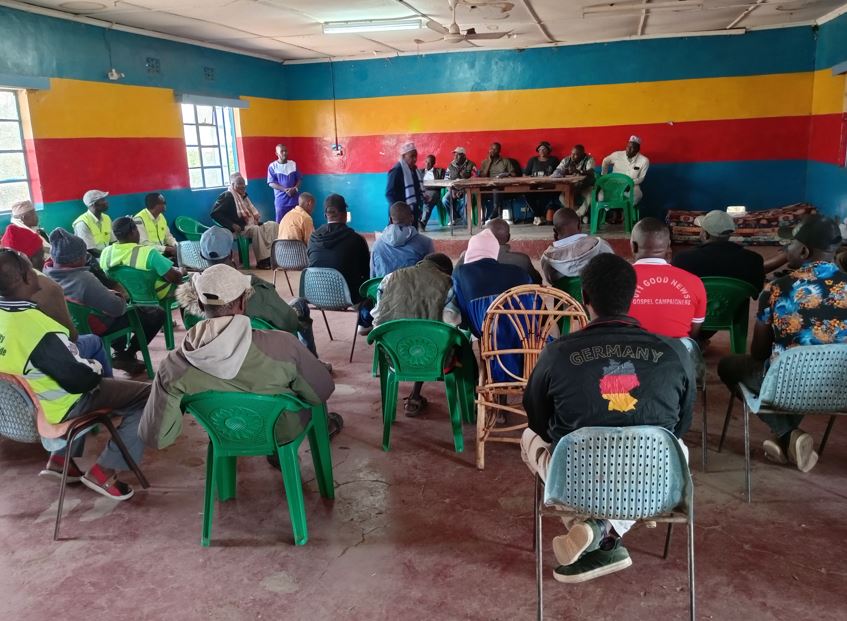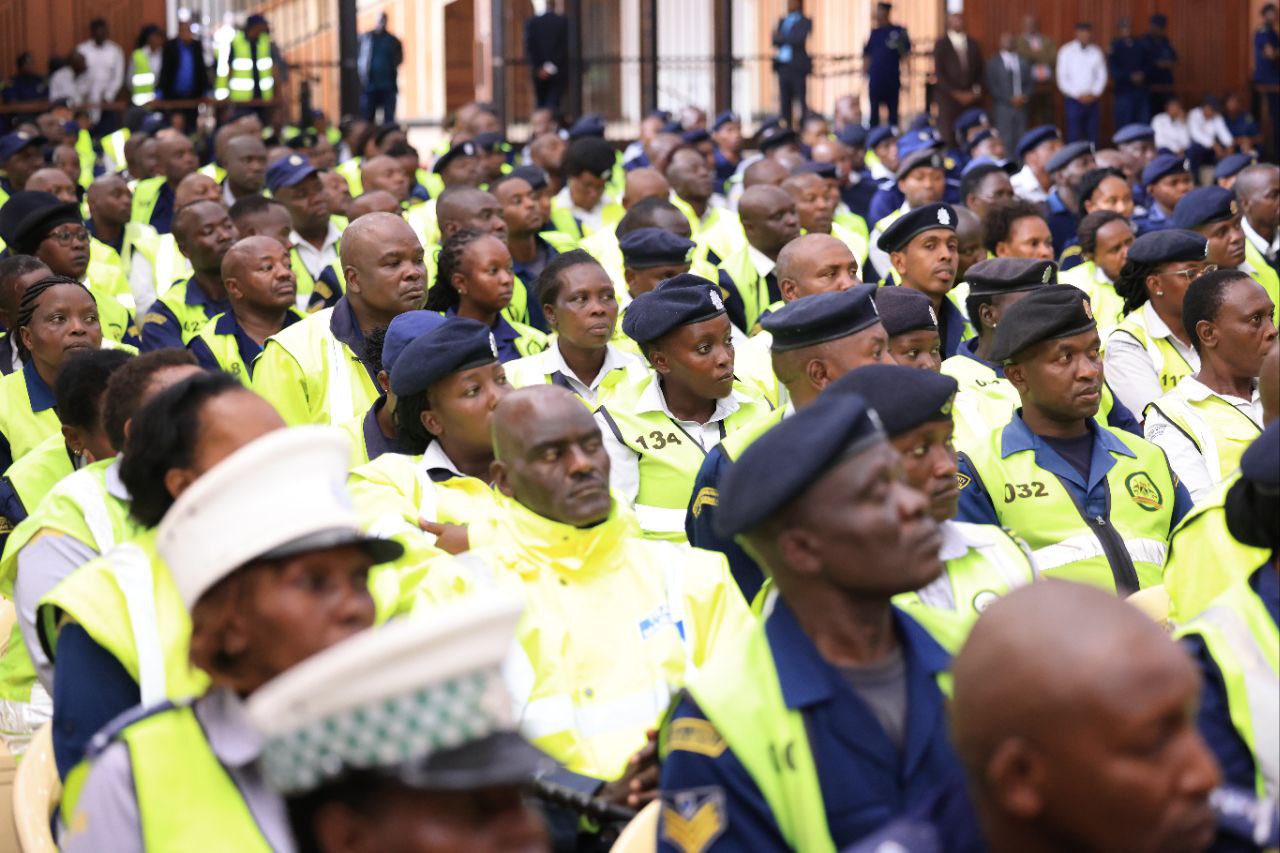Boda-boda menace: Head, limb injuries prevalent as Kenyans shun helmet use
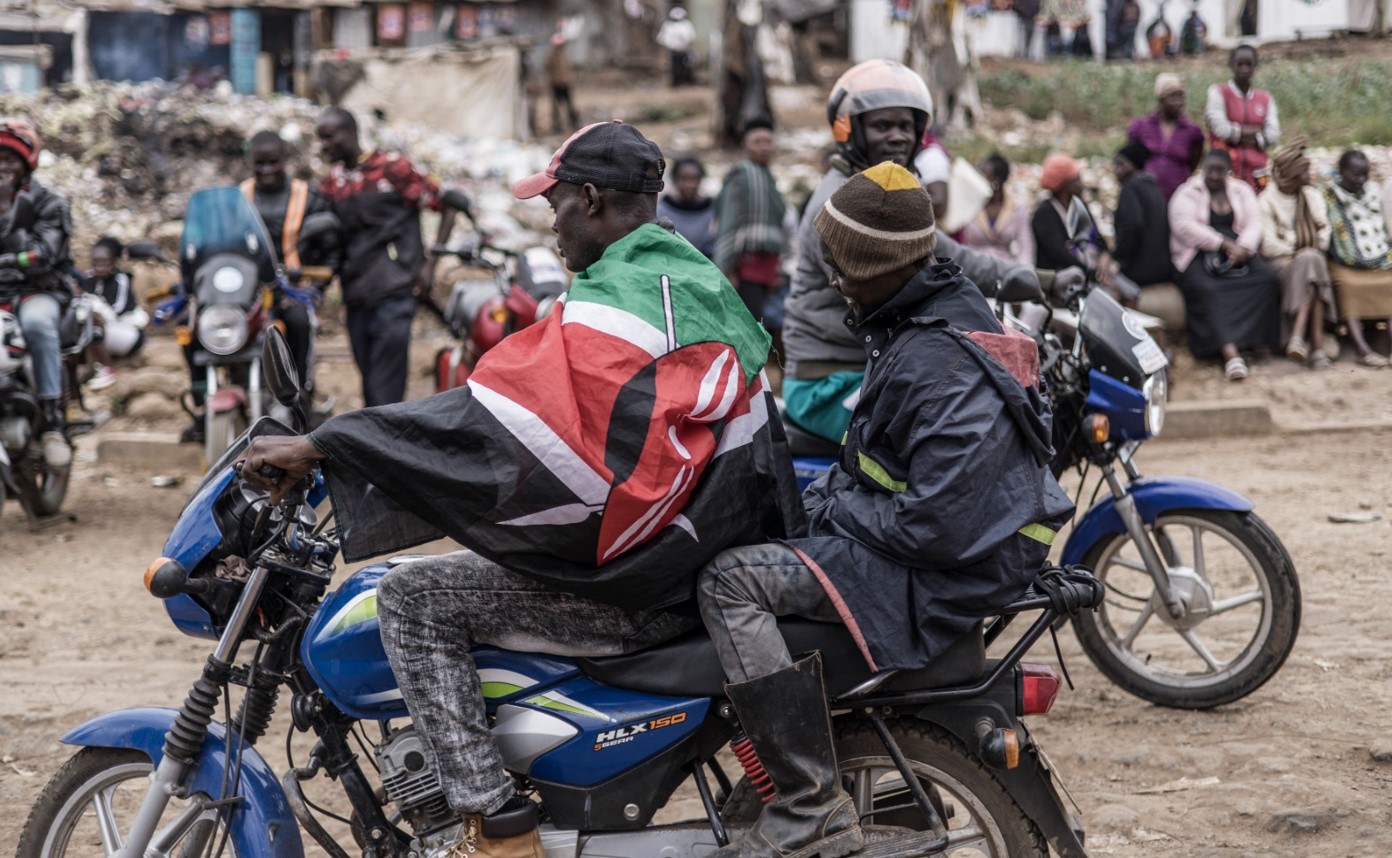
By Mary Wambui |
A study has found that only 63 per cent of boda-boda operators and a small fraction of pillion passengers - 15 per cent - wear helmets, and that they do so in areas under greater police surveillance.
A new study to establish the health costs of boda-boda accidents in Kenya has shown that injuries to the head and limbs are the leading causes of financial burdens for victims.
The study dubbed "A Fare Price: An investigation into the health costs of motorcycle taxi crashes in Kenya" set out to understand more about helmet use, and the impact of motorcycle-related deaths and injuries.
Keep reading
It also aimed to build a case for immediate action to strengthen the enforcement of the Kenyan motorcycle helmet standard.
The study found that head injuries are the leading cause of hospital admission, representing more than one-third of all injuries (35 per cent), according to hospital records.
"Four injury types are recorded, of which injuries to the head and limbs were the most common (69 per cent), with 24 per cent of patients experiencing more than one type of injury," the study notes.
It further found that six per cent of victims died during treatment and that the mean length of hospital stays was 18.12 days, with almost 28 per cent of patients spending more than three weeks in health facilities.
"Records from two selected hospitals in Nairobi showed almost 1,000 individuals injured in motorcycle crashes in an 18-month period were under the age of 35 years, with boda-boda operators (62 per cent) being more frequently injured than pillion passengers," the report adds.
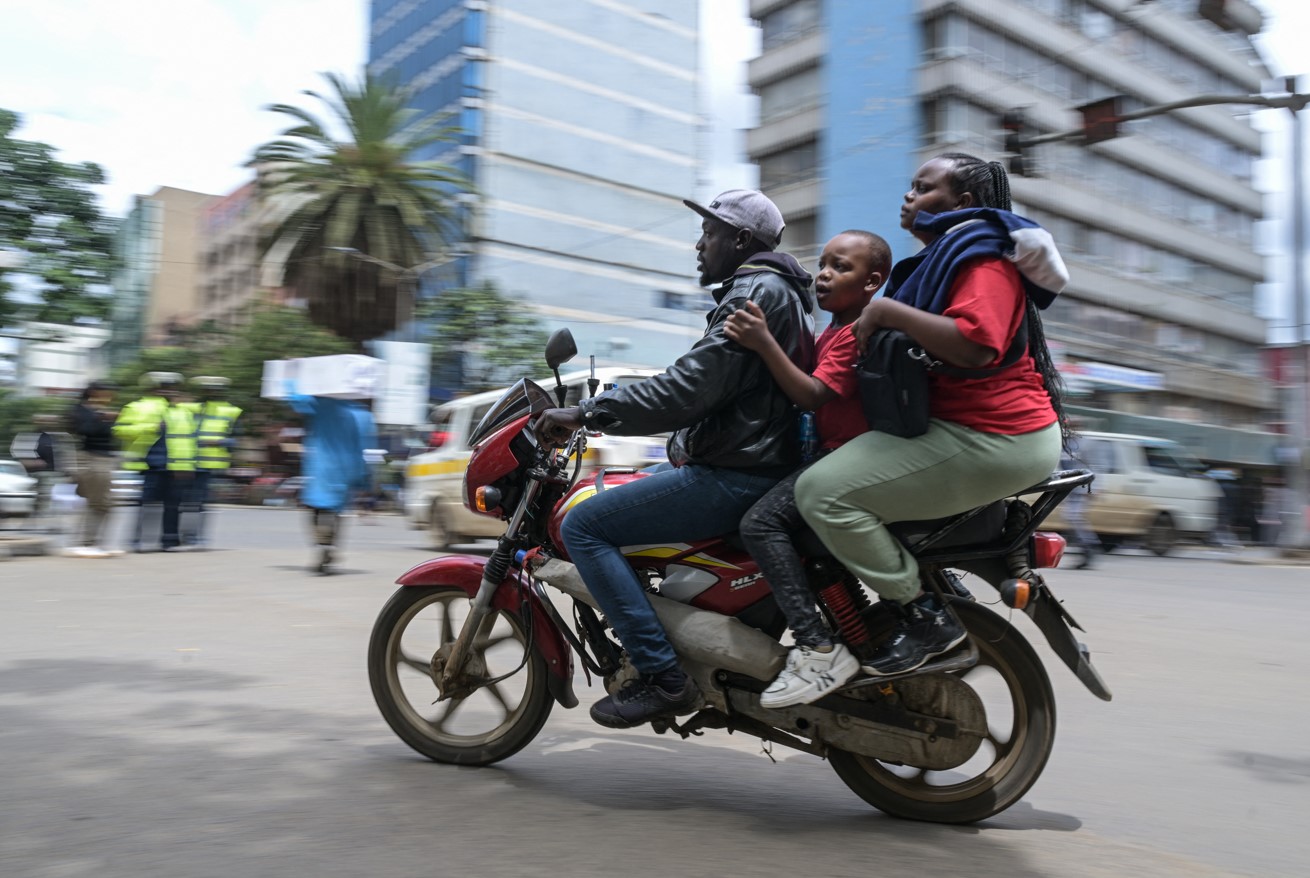 A boda-boda rider transports passengers in the central business district in Nairobi on November 17, 2023. (Photo: Simon Maina/ AFP)
A boda-boda rider transports passengers in the central business district in Nairobi on November 17, 2023. (Photo: Simon Maina/ AFP)
Helmet use
The research studied the busiest roads in Nairobi, including Mombasa, Kangundo, Outer Ring, Jogoo and Thika roads, at different times of the day and interviewed 3,415 motorcycle users.
With head injuries among the leading in boda-boda accidents, the research sought to find out why Kenyans avoid helmets while moving around as pillion passengers.
A study has found that only 63 per cent of boda-boda operators and a small fraction of pillion passengers - 15 per cent - wear helmets, and that they do so in areas under greater police surveillance.
Riders confirmed that enforcement crackdowns were the primary influence on whether or not to wear a helmet.
"Riders in general reported only wearing helmets to "avoid being stopped by police and for this reason, they purchased cheaper, poor quality helmets," the report says.
While the law states that they should be provided with a helmet by the boda-boda operator, the majority of pillion passengers were found to avoid helmet use for hygiene and aesthetic reasons.
Boda-boda operators further confirmed that they are not aware of how to establish the quality of their helmets, which are bought separately from the motorcycle.
Some judge their quality by the availability of the Kenya Bureau of Statistics (KEBS) standardisation mark.
"Motorcycle users made up 35 per cent of all deaths on Kenya's roads in 2023 with low helmet prevalence considered a principal reason for this, despite robust legislation," the report said.
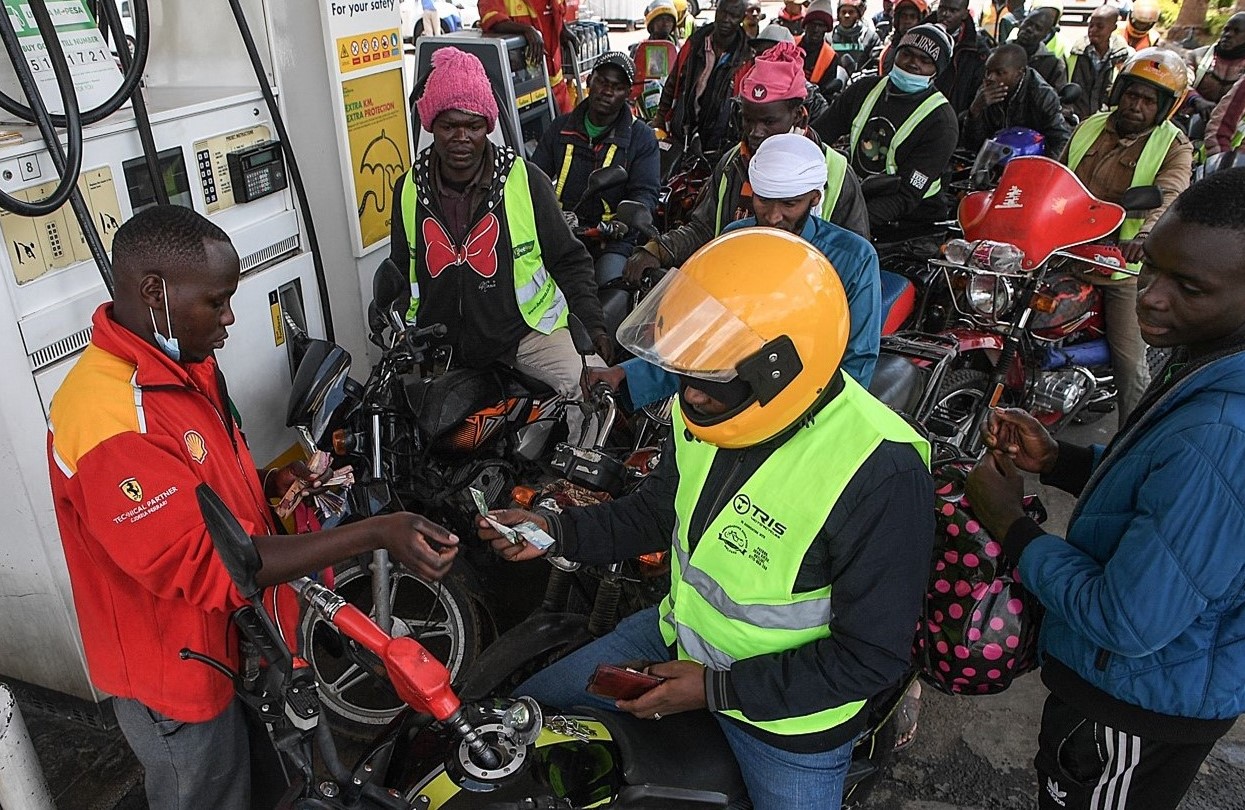 Boda-Boda motorcycle taxis queue for fuel at a gas station in Nairobi on April 4, 2022. (Photo: Simon Maina/ AFP)
Boda-Boda motorcycle taxis queue for fuel at a gas station in Nairobi on April 4, 2022. (Photo: Simon Maina/ AFP)
Recommendations
The study recommended that the national government strengthen its motorcycle road safety initiatives and commit to enforcing the best road safety laws and standards and improving trauma care.
"In particular, there should be a good helmet standard and the capacity to test helmets to reduce the spurge of poor quality (and potentially dangerous) helmets that flood into countries," the study stated.
Additionally, it was recommended that relevant government agencies conduct public awareness exercises around helmet safety and its importance, particularly on those with safety standard markings, types of helmets sold and their levels of protection.
Government estimates show there are more than 2.4 million boda-bodas operators in Kenya but that 2.2 million are currently registered and operational, providing essential mobility in both rural and urban areas.
"Kenyan citizens make over 22 million journeys every day, providing more affordable access to essential services, education and employment. This does, however, come at a high cost with increasing risk to users, from a personal safety point of view," the study notes.
It recommended a commitment by multiple sectors to collaboratively address motorcycle safety and save the lives of millions of Kenyans who rely on this mode of transport.
Reader comments
Follow Us and Stay Connected!
We'd love for you to join our community and stay updated with our latest stories and updates. Follow us on our social media channels and be part of the conversation!
Let's stay connected and keep the dialogue going!









